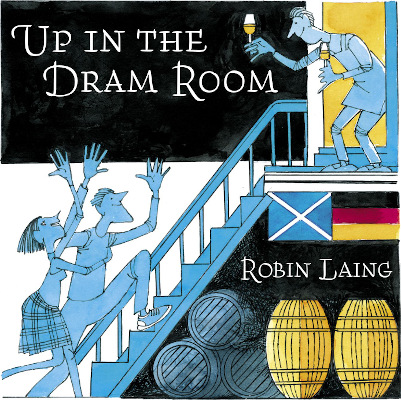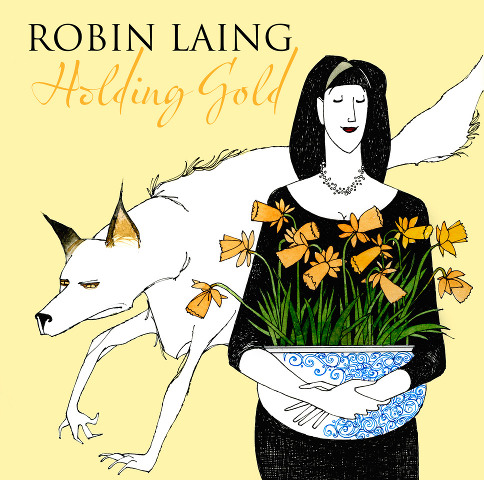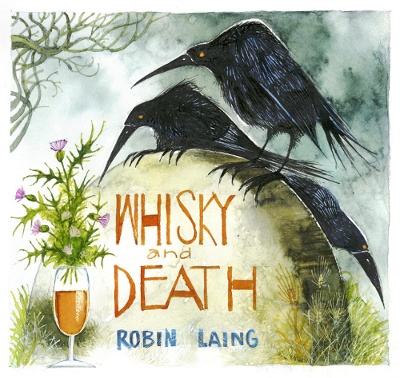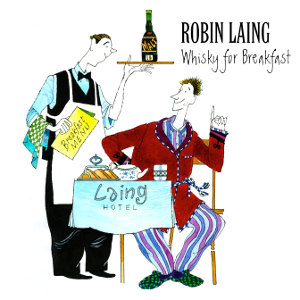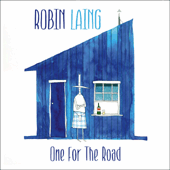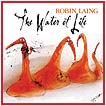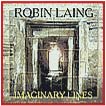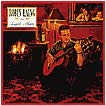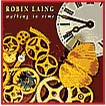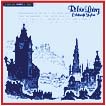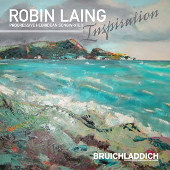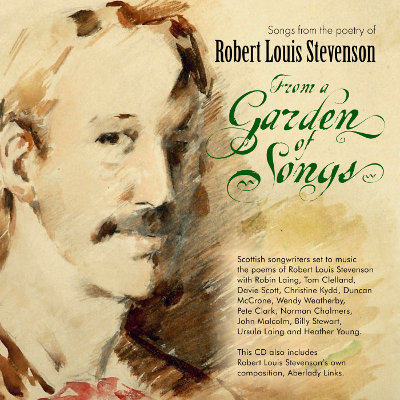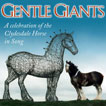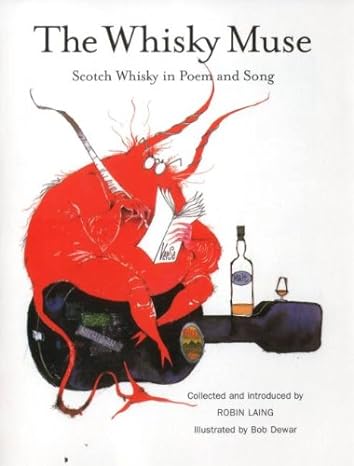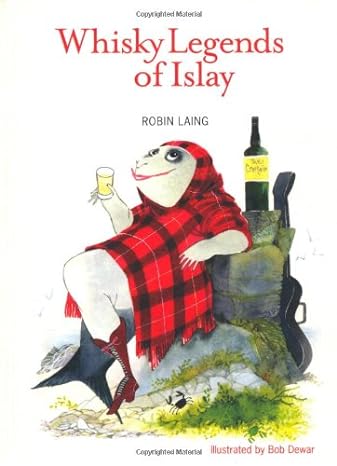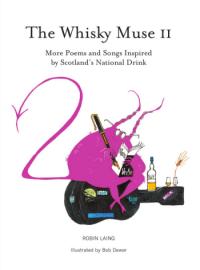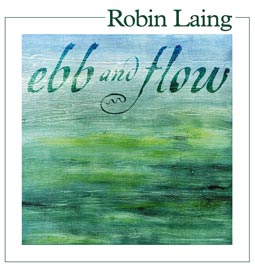
CDs are all £10 plus p+p.
To purchase contact me by e-mail or buy online from musicscotland.com or amazon.
Ebb and Flow is my sixth solo CD but the first one to have nothing but my own songs. My skills as a songwriter are improving and I hope they will improve more as I practice the craft.
Whistleberry Music is a new Songwriters’ Cooperative Record Label.
“Ebb and Flow” is Whistleberry CD001. Tom Clelland’s “Life Goes On” is 002 and Peter Nardini’s “Rain Din” is 003. These three songwriter albums were released together in April 2005.
I really hope you enjoy these songs. I present the stories behind the songs on this website because so many people say they enjoy hearing the introductions to the songs when I perform them live.
Below you can soon find the lyrics of all the tracks on this CD
There’s a New Life Round the Corner
Lyrics coming soon
Background of this song
This is a road trip song. I was driving from Ontario to Pittsburgh one October when I discovered I was going to be a dad again (quite a long time after my older children had already grown up). In part the song is about that, especially the “out of time” aspect – “side stepping seasons too”. I was also aware of the exodus of legions of older people heading south for the winter (winter can be long and harsh in parts of Canada). Lots of people head for Florida and because of this migration they are known as “snowbirds”. I was aware that by just driving onwards I could have ended up in the Deep South. I’ve never been to the Southern States but I have relatives in Alabama and I realised that just by staying on the road a bit longer I could have ended up there in the land of Azalea flowers, cotton and tobacco. All these thoughts came together in this song. I hope that it comes across as essentially optimistic and about the excitement that life changes can bring (though most people fear them). The music has some relevance. The opening strings suggest the high plains and the slide guitar suggests the Delta South while the fading at the end of the track is the car driving away into the distance.
Born in the Blossom Time
Lyrics coming Soon
Background of this song
This song was about the birth of Maisie. She was born in May 2000. Late spring is a very attractive time in the Clyde Valley, with all the old fruit orchards in blossom and that year the weather was particularly good. I remember walking the lanes in the days after she was born with blossoms falling like rain and the sun warm and beautiful. It was a very emotional time (Maisie’s birth had been far from straight forward) and the song came out of that. I used the song as a way of expressing my lack of belief in religion or superstition – it amazes me what some people will believe in. Interestingly a friend told us that Maisie has a very unusual astrological chart, with 6 planets clustered tightly together in the same house. She certainly is one of a kind. The reference to the “naked astronaut” came from a card we received from our friend Gerry Cambridge, a very gifted poet and photographer and harmonica player. The musical feel is trying to convey summer and the joy of nature – hip-swinging rhythm through sunny fields of golden grain.
Laughing Boy
Lyrics coming Soon
Background of this song
And then Hamish came along and I couldn’t have a song for Maisie and not for Hamish. It took me a while to figure out how to do the song, and while I was thinking about it Hamish learned to walk and talk and his character began to emerge. Soon, he provided the answer – we called him the Laughing Boy because he had a ready and infectious laugh. I wrote the song to celebrate that and to hope that he will never lose it. Humour is such an important ingredient in life. The reference to Mr Holden is about Robert Holden, the founder of the Laughter Clinic in London. Robert’s work involves treating people with mental health or life problems by getting them to laugh. The physical act of laughing releases endorphins into the body and makes us feel better, whether the laughter had a real cause or not.
A quotation from J M Barrie’s “Peter Pan” lay behind the part that begins “the first time a baby laughed out loud”. Peter Pan is over 100 years old now and I think we can learn a great deal from that story, by never losing sight of the child within us. Einstein said that for most people life, from childhood onwards, is a “sustained flight from wonder”. How true, and what a tragedy. Sullivan the monster comes from the film “Monsters Inc”, a favourite in our house for children and adults. Few people realise it is a satire on Corporate culture in a Capitalist society. I met Tony McLaughlin (excellent singer and songwriter) while on tour in Germany and I stayed at his house in Nurnberg for a few days. He showed me the Travis Pick on the guitar and that informed my arrangement of the tune. Tune and words were forming as I walked the forest trails outside Nurnberg.
The Bloofer Lady
Lyrics coming Soon
Background of this song
All these references to childhood lead naturally to the story of a lady vampire who takes children for nocturnal walks! The reference is to Bram Stoker’s “Dracula”. In chapter 13 we meet the Bloofer Lady. She is Lucy Westenra, a lovely girl who became Dracula’s first victim after he landed in Whitby. I was in Whitby for the folk festival in 2000. It seemed like a good time and place to read “Dracula” and I was surprised at what a great read it is. Lucy apparently dies, but then professor Van Helsing announces that she has become a vampire herself, and with the help of the other male members of the cast, they follow her to her lair and release her from her “undead” status by driving a stake through her heart and cutting off her head. Fantastic stuff! Anyway, the children that she walked with, through the night, seemed to have found her a charismatic and magnetic personality (as vampires often are), so I wrote the song from that perspective. It seems possible to have some sympathy with Lucy while not necessarily being sympathetic to vampires in general. If you have not read “Dracula”, I recommend it. It is a wonderful example of Victorian Gothic horror. It reads so well you can even read it out loud, though maybe not to the kids. So many films have flowed from this simple tale, written by an Irishman in Scotland about a Transylvanian Count coming to England. Stoker portrays the decaying and decadent parasitism of the aristocracy so well that he must have been a socialist.
Islands
Lyrics coming Soon
Background of this song
Scotland is a lucky country in many ways. One of our blessings is the rich tapestry of islands that adorns our coast. I have not visited all the islands yet, but I have enough experience to know that each island has its own character and treasure to discover. (They are all “Treasure Islands”!).
This song was begun on Islay, when Jim MacEwan of Bruichladdich invited 10 songwriters from Lanarkshire to Islay for a weekend. The song started of as a complete human history of Islay. It was called “Human Tides” and it was way too long. Tom Clelland suggested that it might be two songs in one, needing to be separated – one about the history of Islay and one about the way in which we feel drawn to islands and about their “essence”. I wrote that one and changed the name. The song about the history of Islay will have to wait a while.
When I first recorded it in the studio, it still seemed too long, so I removed two verses and a chorus and this is the result. Musically we tried to create a sense of the tides washing in and out of the island’s bays and maybe the mist that sometimes shields islands from our view. They do have a mystery and a way of calling to us. Something in human nature is attracted to the idea of islands, maybe because they are easier to protect from invaders, like crannogs, maybe because they are separate individuals like us. Perhaps “No man is an island” but many of us would like to be.
The Lotus Eaters
Lyrics coming Soon
Background of this song
Every CD of mine so far (apart from the whisky CDs) has a song about Ulysses. This track makes number four. Perhaps some day there might be a Ulysses project in there. I once did a story, poem and song show called “Ulysses Inspired”, but somehow I feel there is something better to come.
If you read “The Odyssey” (which I also recommend) you will find that the story of the Lotus Eaters is quite a short adventure in the book. On the way back from the Trojan War, Ulysses and his men were driven deep into the Mediterranean by a storm which lasted for nine days. When at last the weather settled, they saw that they were not far from land, but they had no idea where they were. If you read “The Ulysses Voyage” by Tim Severin (which I also recommend) the suggestion is that they were on the North African coast, having crossed the Mediterranean completely.
Ulysses sent three of his men to check out the local people while the ships were attended to and supplies topped up. These three encountered the Lotus Eaters – a rather quiet, drug-dulled, hippy crowd who got permanently high on the Lotus fruit. Ulysses’ men unsuspectingly ate the fruit they were offered and came under its powerful spell. They were no longer interested in their duties or responsibilities and did not return to the ships.
Eventually Ulysses got fed up waiting and went looking for them. Always wary, he refused the fruit and quickly realised what had happened. He had the three men dragged back, protesting, to the ships and off they sailed – end of story.
Tennyson also wrote a poem called “The Lotus Eaters” (recommended!). If you’ve seen the movie “Troy” (which I guardedly recommend, if only because they managed to make the Iliad less boring) you will know that Ulysses was the guy who dreamed up the idea of the wooden horse – hence the expression “beware of Greeks bearing gifts’ and hence my reference to “the hardest thing to fight is the gift someone places in your hand”. Of course the song is really about drugs – one of the scourges of our society. I had in mind my three younger brothers, victims of that scourge, when I wrote it, and wished that they had had a Ulysses to take them out of harm’s way.
Ursula adds a lovely backing vocal, which gives a Greek flavour to the track.
Black Coffee
Lyrics coming Soon
Background of this song
Of course not all drugs are equally harmful and this is my celebration of the coffee bean. Sadly, Scotland is one of those countries cursed by an inexplicable inability to make good coffee (I exempt the Scots Italians from this of course – thank Heaven for them). I started this song in Oslo and finished it in Luzern. Somehow it doesn’t matter which country on mainland Europe you are in the coffee is mostly drinkable. It’s enough to make you want to emigrate. Naturally the music is designed to make your legs twitch like too much coffee would.
Jamie Penman
Lyrics coming Soon
Background of this song
The Lanarkshire Songwriters recently started tackling the subject of the Covenanters. This is a rather difficult period in Scotland’s history to understand. The King (Charles I) tried to dictate the way that the Scots should worship, and many of the Scots preferred to worship secretly in the hills and take up arms, rather than comply. That’s about the base line, but of course it is all tied up with the Scots’ pride in their Reformation and the issue of the Devine Right of Kings – a notion that was finally put to rest when Charles lost his head.
It was a dark time, infecting most of the seventeenth century. There were many battles and skirmishes, cruel deeds and execution of martyrs. Hard for us to understand, but the Covenanters were often prepared to die rather than sign a submission to the King. I guess they expected rewards in Heaven.
I came across the story of James Penman in a book in the Moat Park museum in Biggar. It gave a brief account of his adventures and made reference to an original manuscript held in the Advocates Library in Edinburgh. With the help of the staff of the National Library I was able to get a copy.
Jamie Penman fought at Bothwell Brig where the Covenanters were soundly defeated and very cruelly treated by the forces of the King (Claverhouse and the Duke of Monmouth). Lucky to survive, he was involved in the brutal forced march to Edinburgh and imprisoned in the open-air prison at Greyfriars Churchyard. Following that he was condemned to exile and held with 250 of the prisoners in the hold of the “Crown of London” at Leith docks. They were held there for 15 days without food or water before sailing.
The story of the Crown of London is one of the blackest in all the Covenanters tales. Local people heard the cries of the prisoners and donated two barrels of beer to the ship. The crew drank it. James’ account says that they were “forced to drink their own piss” in order to survive.
When the ship finally sailed it for the West Indies it only got as far as Orkney where it foundered in a storm and was driven onto the rocks. The crew saved themselves and refused to set the prisoners free (no doubt afraid for their own lives after their barbarous treatment of the prisoners). One account says that a man came back and broke one of the hatches open. It is not clear who that was, but in any case only 50 men escaped to the shore and two hundred drowned. There were four Biggar men on the ship but James Penman was the only one who survived.
There is a monument on the cliff top on Orkney to commemorate their deaths. I wrote the song, feeling that surely after such an adventure a man’s faith would be severely tested. But then again I don’t know for sure – faith is a funny thing.
The Covenanter’s Grave
Lyrics coming Soon
Background of this song
Another Covenanter song, obviously. This flowed from an experience I had many years ago walking in the hills near Dunsyre. It was one of those special days when the hills are deserted but the weather was a bright sunny day in Spring. For many reasons (including the birds eggs and the hot-air balloon), the day has stayed in my mind for years. The main thing though, was finding this large gravestone up on a hill in the middle of nowhere. The inscription was not very legible but I discovered the story later.
The grave is that of a Covenanter from Ayrshire who had been wounded at the Battle of Rullion Green on the slopes of the Pentland Hills not far from Edinburgh. The Covenanters were defeated in that battle by Tam Dayell of the Binns (the name of the family head who still lives there).
The wounded soldier (if that is indeed the right word) was heading for his home but died on the way. The local people buried him up on the hillside where the Ayrshire Hills can just be seen in the distance. A romantic gesture from a dark time.
The lyrics are full of “then and now” references and so is the music, with the Pipe Band snare drum representing the past and the electric guitar the present.
Indigo Blue
Lyrics coming Soon
Background of this song
I was involved with Aonghas MacNeacaill and Billy Stewart in a songwriting initiative for the village of Edinbane, Isle of Skye, in 2003. Our remit was to work with local people to produce a body of songs and poems for the Edinbane Festival. The collection was recorded at the festival and became a CD with the title Edinbanter.
One of the stories that fascinated me most was the story of the man who built the village in the first place. He was a real character called Kenneth MacLeod. His father had lost his lands in the area and MacLeod set off to India with only a guinea in his pocket. After making his fortune in the indigo trade he came back to buy the ancestral lands and established the village of Aodhan Ban (“White Face” in gaelic) The village was apparently named after the Ox Eye daisies which grew there in profusion before the land was croftified.
The almost forgotten adventurer is now acknowledged in this song.
Donald Cameron VC
Lyrics coming Soon
Background of this song
Another initiative taken on by the Lanarkshire Songwriters was to create a collection of songs acknowledging the 14 Victoria Cross winners from Lanarkshire. That collection is available in a CD and CD-ROM called “Fourteen Gallant Men”. We were hugely encouraged and helped by Duncan Brown who has also painted pictures for each of the men.
Incredibly three of those heroes came from Carluke, the nearest town to where I live. I took on the task of writing a song for the only Navy VC among them, Donald Cameron, one of the Carluke men. The research I did was some of the most fascinating I’ve ever done for a song.
The Tirpitz was the biggest destroyer in the German Fleet. Britain had nothing to match it and it was tightly protected in a steep-sided fjord in the north of Norway, from where it frequently emerged to wreak havoc among the convoys taking aid and armaments to our Russian allies. It is estimated that those convoys lost a thousand men and innumerable airoplanes, tanks, guns and vehicles, all of which ended up at the bottom of the sea. The Tirpitz had to be dealt with.
Donald Cameron was a submariner and he was involved in the attack on the Tirpitz in 1943, in which X Class midget submarines were used for the first time. These were prototype subs which each carried a four-man crew. They had never been properly tested and naturally many things went wrong. All the men who took part were volunteers for “hazardous missions”.
Hazardous it was indeed. The subs were towed underwater up to the Arctic Circle from Loch Cairnbawn by large submarines. Two of the tows parted on the voyage. One tow broke at the midget sub and it floated to the surface, amazingly to be spotted by another sub and reunited with its tow. The other tow broke at the mother sub end and sadly the weight of the tow made that midget sub dive and it went straight to the bottom, killing the three man crew. Two of the subs eventually got through the defences – those under the command of Donald Cameron and Godfrey Place.
They managed to place the charges under the Tirpitz but then had to abandon their craft. They were pulled aboard the Tirpitz and were given hot coffee and Schnapps by the German Captain. They took the Schnapps (no doubt given to them to loosen their tongues) but said nothing, waiting for the ship to blow. Blow it did, and the explosion lifted it six feet out of the water and made such a hole that it never took part in the war again. It was finally dealt a deathblow by bombers when it was taken south by the German Navy to try repairs.
Place survived but two of his crew were drowned. Cameron and Place were awarded the VC while they were prisoners of war. This did not stand against them as some had feared and if anything they were treated with respect by their German captors.
Time passes and so many deeds of bravery are forgotten. Duncan Brown and the Lanarkshire Songwriters have done something to try to remember those to whom we owe so much.
I Believe in You
Lyrics coming Soon
Background of this song
I fully accept that there are things in this Universe and on this planet that are beyond the understanding of human beings. I do not accept the many systems of belief that man has created to try to cast light on our ignorance. Many of these belief systems have become discredited over time while some are incredibly resilient. It never ceases to amaze me what apparently rational human beings will believe in. That is the homily that surrounds this otherwise simple love song.
Silver
Lyrics coming Soon
Background of this song
The title of this song is borrowed from a famous and beautiful poem of the same name by Walter de la Mare. In August and September 2003 Mars came closer than usual to the Earth and could be clearly seen with the naked eye. A rare night of magic watching Mars emerge from the trees on the hill behind our house, followed by the full moon is remembered in this song.
Skip Back a Track and Replay
Lyrics coming Soon
Background of this song
My friend Tom Clelland wrote a song called “Lock me on Fast Forward” which can be found on his first CD “Little Stories” (which I recommend). Tom’s song was about a man who was having such trouble in life that he wanted to just miss the next bit of his life and hopefully wake up when the bad patch was over. The idea might appeal to anyone who has had major problems to deal with. Indeed it has some resonance with my song “Born in the Wrong Time” (found on Imaginary Lines), but I wanted to put the opposite point of view and wrote this song as a repost to Tom’s excellent song. It started out as a kind of Carpe Diem statement (the Bhudda wisely said “there is no way to happiness, happiness IS the way), but it ended up as a love song. Surprise, surprise!
All Robin Laing Albums
Ebb and Flow
Embark to Ebb and Flow. Experience the magic of Scottish folk songs by acclaimed musician, singer, and songwriter, Robin Laing. Dive into the rich tapestry of storytelling through music.


